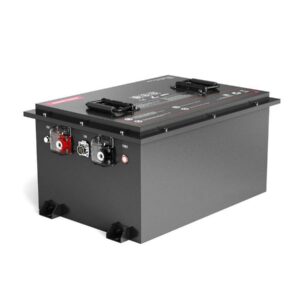
How long does a diesel engine battery last?
A diesel engine battery typically lasts 2–5 years, depending on usage patterns, maintenance, and operating conditions. Heavy-duty applications (e.g., trucks) often see 2–3 years due to high cranking demands, while well-maintained systems may reach 4–5 years. Key factors include battery type (flooded lead-acid vs. AGM), frequency of deep discharges, and ambient temperature extremes. Pro Tip: Monthly voltage checks (target: 12.6V+) can prevent premature failure.
What Is the Best Battery for a Diesel Pickup Truck?
What shortens diesel battery lifespan?
Frequent deep discharges and vibration exposure are primary lifespan reducers. Diesel batteries endure 800–1,500 CCA (cold cranking amps) loads daily, stressing plates 30% more than gasoline equivalents.

Vibration from diesel engines accelerates plate shedding—AGM batteries last 40% longer here due to immobilized electrolytes. Thermal stress in engine compartments degrades electrolytes 2x faster when temperatures exceed 45°C. For example, a delivery truck idling 6 hours/day in desert heat might need annual replacements. Pro Tip: Use vibration-dampening trays and avoid mounting batteries near exhaust manifolds.
| Factor | Impact on Lifespan | Mitigation |
|---|---|---|
| Deep Discharges | -30% per 10 cycles | Install voltage cutoff at 11.8V |
| High Heat | -50% at 50°C | Add heat shields |
| Vibration | -25% annually | AGM + tray mounts |
How do maintenance practices affect longevity?
Terminal cleaning and proper charging boost lifespan by 20–35%. Corroded terminals increase resistance, forcing batteries to work harder during cranking.
Monthly maintenance should include scrubbing terminals with baking soda solution and applying anti-corrosion gel. Undercharging (<13.2V) causes stratification—a 50Ah battery loses 8Ah capacity yearly. Conversely, smart chargers with desulfation modes recover 5–7% capacity. Imagine a fleet truck battery lasting 4 years instead of 2.5 through biweekly equalization charges. Why risk $200 replacements when $10 terminal spray prevents 80% of failures?
| Practice | Benefit | Frequency |
|---|---|---|
| Terminal Cleaning | Prevents 0.3V drop | Monthly |
| Equalization | Balances cells | Quarterly |
| Load Testing | Detects weak cells | Biannually |
Can battery technology extend service life?
Lithium iron phosphate (LiFePO4) and EFB batteries offer 3–8 year lifespans. While 2–3x pricier than lead-acid, they withstand deeper discharges and vibrations.
LiFePO4 batteries tolerate 3,000+ cycles at 80% DoD versus 300–500 cycles for lead-acid. Their 10kg weight reduction also cuts fuel costs by 1–2% in trucks. However, compatibility issues arise—most diesel alternators output 14.4V, but LiFePO4 requires 14.6V±0.2V charging. Pro Tip: Use DC-DC converters to optimize voltage for lithium setups. Though initial costs are higher, the ROI becomes positive after 18 months in high-usage scenarios.
Are Duracell Car Batteries a Good Choice for Your Vehicle?
Battery Expert Insight
FAQs
Can I use a car battery in a diesel engine?
No—diesel engines require batteries with 30–50% higher CCA ratings. Passenger car batteries often lack the robust plates needed for repeated high-current draws.
How do I know when to replace my diesel battery?
Replace if cranking voltage drops below 9.6V during start or capacity tests show <50% of rated Ah. Swollen cases and terminal corrosion ≥50% are visual red flags.
